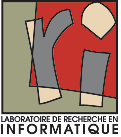Adaptive beamforming and user association in heterogeneous cloud radio access networks: A mobility-aware performance-cost trade-off
Résumé
Heterogeneous Cloud Radio Access Network (H-CRAN) is a promising network architecture for the future 5G mobile communication system to address the increasing demand for mobile data traffic. In this work, we consider the design of efficient joint beamforming and user clustering (user-to-Remote Radio Head (RRH) association) in the downlink of a H-CRAN where users have different mobility profiles. Given the rapidly time-varying nature of such wireless environment, it becomes very challenging to enable optimized beamforming and user clustering without incurring large Channel State Information (CSI) and signaling overheads. The main objective of this work is to investigate and evaluate the trade-off between system throughput and the incurred costs in terms of complexity and signaling overhead, including the impact of different CSI feedback strategies given different user mobility profiles. We propose the Adaptive Beamforming and User Clustering (ABUC) algorithm which adapts its feedback parameters, namely the period of dynamic user clustering and the type of CSI feedback, in function of user mobility. Furthermore, we design a reinforcement-learning framework which enables the proposed ABUC algorithm to optimize its scheduling parameters on-the-fly, given each user mobility profile. Based on computer simulations, an analysis of the effect of mobility on system performance metrics is presented and conclusions are drawn regarding the algorithm’s adequate parameter tuning for different mobility scenarios.
Domaines
Informatique [cs]| Origine | Fichiers produits par l'(les) auteur(s) |
|---|




